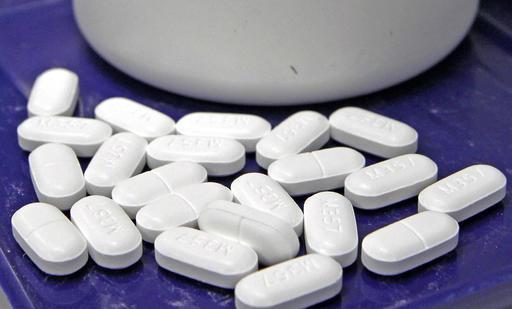This post was originally published on this site

CHARLESTON, W.Va. (AP) — A major California-based drug wholesaler has agreed to pay $150 million to settle allegations that it failed to detect and report pharmacies’ suspicious orders of prescription pain pills, federal prosecutors said Tuesday.
The settlement commits San Francisco-based McKesson Corp. to a multi-year suspension of sales of controlled substances from distribution centers in Colorado, Ohio, Michigan and Florida. It also imposes new and enhanced compliance requirements on McKesson’s distribution system.
The suspensions are among the most severe sanctions ever agreed to by a Drug Enforcement Agency-registered distributor, according to a statement by the U.S. Justice Department and the U.S. attorney’s office for West Virginia’s northern district.
“Today’s settlement sends a clear message to all distributors of pharmaceutical drugs that it is essential to dispense controlled substances in compliance with DEA’s record keeping requirements,” DEA Special Agent in Charge Karl C. Colder said in the statement.
In 2008, McKesson agreed to a $13.25 million civil penalty for similar violations.
Chairman and CEO John H. Hammergren said in a statement that McKesson is “committed to tackling this multi-faceted problem in collaboration with all parties in the (prescription drug) supply chain.”
According to the settlement, a former McKesson distribution facility in Landover, Maryland, allegedly routinely failed to report suspicious orders of placed by routine pharmacies from 2008 to 2012 in violation of the Controlled Substances Act.
“In many instances, the suspicious orders placed by West Virginia pharmacies resulted in prescription narcotics being diverted for illegal use and abuse,” said Betsy Steinfeld Jividen, the acting U.S. attorney in northern West Virginia.
One of those pharmacies was Judy’s Drug Store in West Virginia’s Grant County. The pharmacy settled a federal investigation for $2 million and that led to the investigation of McKesson, Jividen said.
Prosecutors said McKesson did not fully apply or adhere to a compliance program that it designed after the 2008 settlement to detect and report suspicious orders to independent and small-chain pharmacy customers.
For example, McKesson process more than 1.6 million orders for controlled substances in Colorado from 2008 to 2013 but reported just 16 orders as suspicious, the settlement noted. It said all of those suspicious orders were tied to one instance of a customer who was recently terminated.
McKesson is the latest distributor to agree to settlements in West Virginia over painkiller shipments. Earlier this month, Cardinal Health agreed to pay $20 million and AmerisourceBergen will pay $16 million to settle a lawsuit filed by West Virginia alleging they fueled West Virginia’s opioid epidemic with excessively large shipments of painkillers over several years.
Earlier, the state settled similar claims against other wholesalers for another $11 million.
A Charleston Gazette-Mail investigation found drug wholesalers shipped 780 million hydrocodone and oxycodone pills to West Virginia in six years, a period when 1,728 people statewide fatally overdosed.
